How to choose the best hardware for your kitchen – expert tips for a cohesive scheme
The right kitchen hardware will elevate your scheme – here's how to make sure you make the best choice
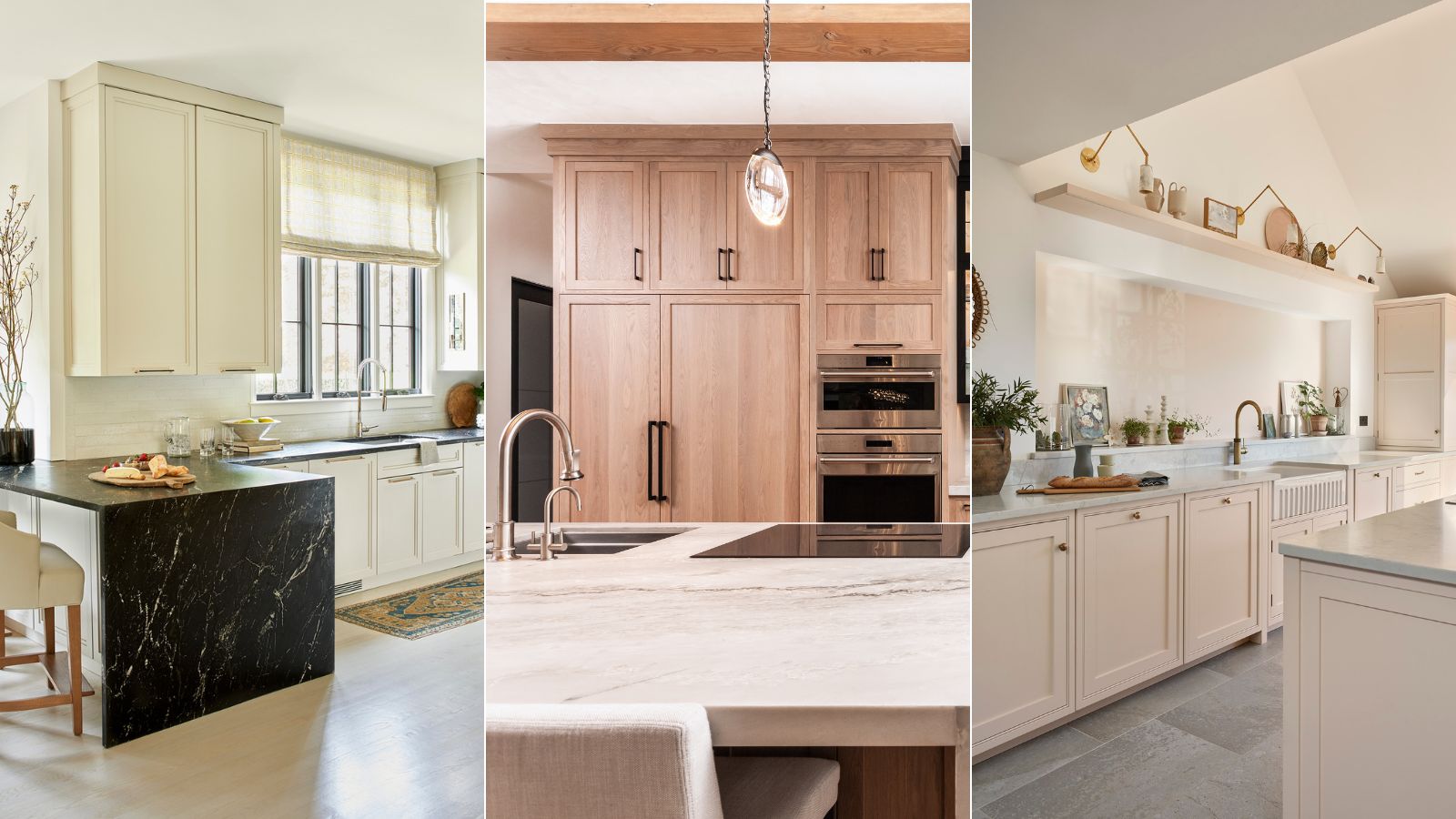

Choosing the best hardware for your kitchen can be a difficult aspect of the design process. With so many styles and finishes to pick between, it can quickly become overwhelming, but this doesn't need to be the case.
When considering kitchen ideas for your space, the obvious features might be the cabinets, colors, and countertops, but don't underestimate the power hardware has on your overall design. It may not be the largest design detail, but it provides the finishing touch that ties your kitchen scheme together.
So, how can you make sure you choose the best hardware for your kitchen? There are a few questions to ask yourself before making a final decision – and according to experts, these are the most important things to consider.
How to choose the best hardware for your kitchen
Whether you're trying to decide if you should match your kitchen cabinet hardware to your faucets and plumbing or are stuck on the best finish to introduce to your scheme, ask yourself these five questions to help make your decision *a lot* easier.
1. Consider the kitchen aesthetic you want to achieve
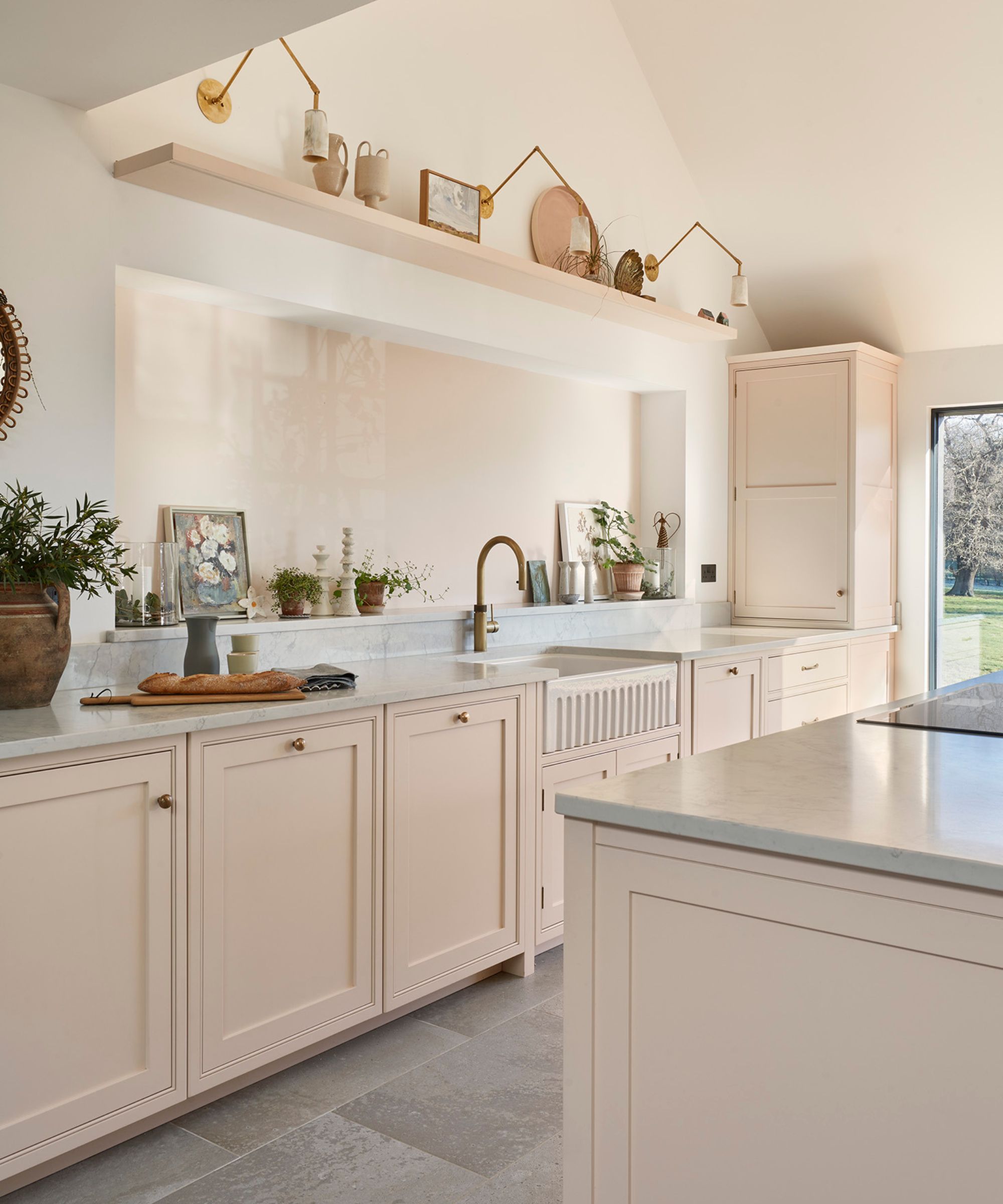
When designing a kitchen, the aesthetic is one of the key factors when deciding on every detail, including the hardware. Consider the interior design style you want to embrace, whether it's modern, traditional, or even maximalist. This will have a big impact on the kitchen hardware you choose to introduce.
'When choosing handles in particular there are a few things that should be considered; how they affect the look of the overall room, how practical they are, and their longevity,' says kitchen expert Richard Davonport.
'For example, modern style kitchens will be better suited to minimalist details such as bar handles, whereas a classic shaker style kitchen may be better matched to cup and knob handles,' he adds.
If your desired kitchen style sits somewhere in between, there are a few ways to introduce kitchen hardware that suits a more transitional design. 'If you’re set on a traditional style handle but want your kitchen to have a contemporary feel (or vice versa), the current kitchen trend for copper and bronze is a good solution as these finishes suit a wide variety of kitchens, from classic country schemes through to industrial and contemporary designs,' Richard suggests.
2. What hardware finish do you prefer?
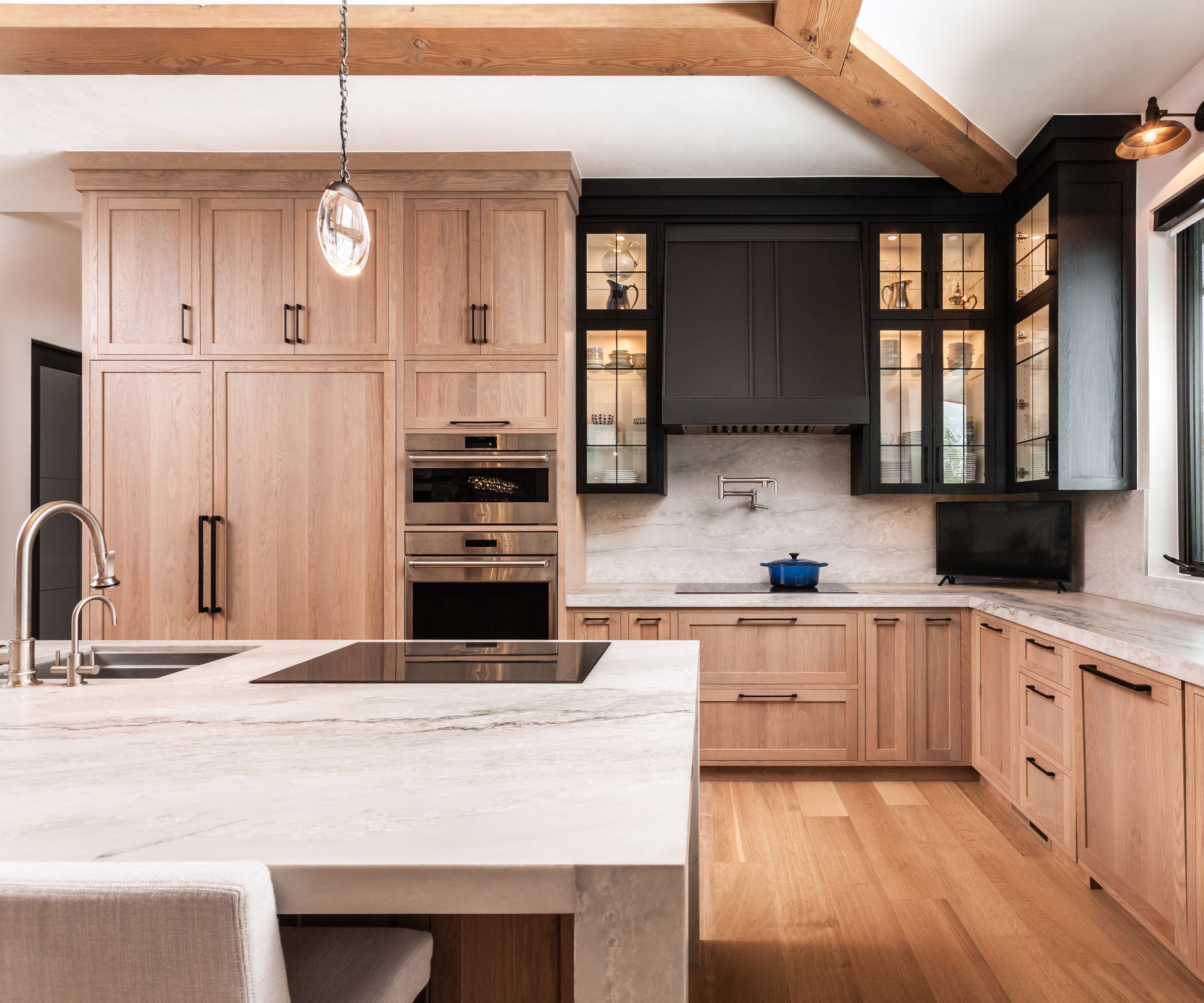
This year's interior design trends champion creating personalized interiors, so as much as the aesthetic of your kitchen plays a big part in choosing the right hardware, your style should also be considered. After all, there's no sense in adding a hardware finish you hate just because it suits a particular kitchen design.
'Cabinet hardware can be made from a wide range of materials, including stainless steel, brass, bronze, zinc, ceramic, glass, and wrought steel. Each material offers unique aesthetics, durability, and price points, allowing homeowners to choose based on their preferences and budget,' says Jo Ann Howa, owner and principal designer at Natural Instincts Interior Design.
'Get samples of the cabinet hardware you think you want to use and have them living in the home. This will help you understand the quality as well as how it feels in your hands,' Jo adds. Seeing the hardware in person will also give you a better feel for the finish and style, so you can make sure you really like your chosen kitchen hardware design.
As well as liking the initial finish, choosing the right kitchen hardware means you need to consider how it will age and wear over time. 'Some suppliers offer bronze alloy finishes that will patina over time resulting in a more rustic worn burnished silvery or copper hue. If you prefer your hardware finish to remain the same, consult with the supplier for options in brass or stainless,' says Jo.
3. What hardware finish suits the design of your kitchen?
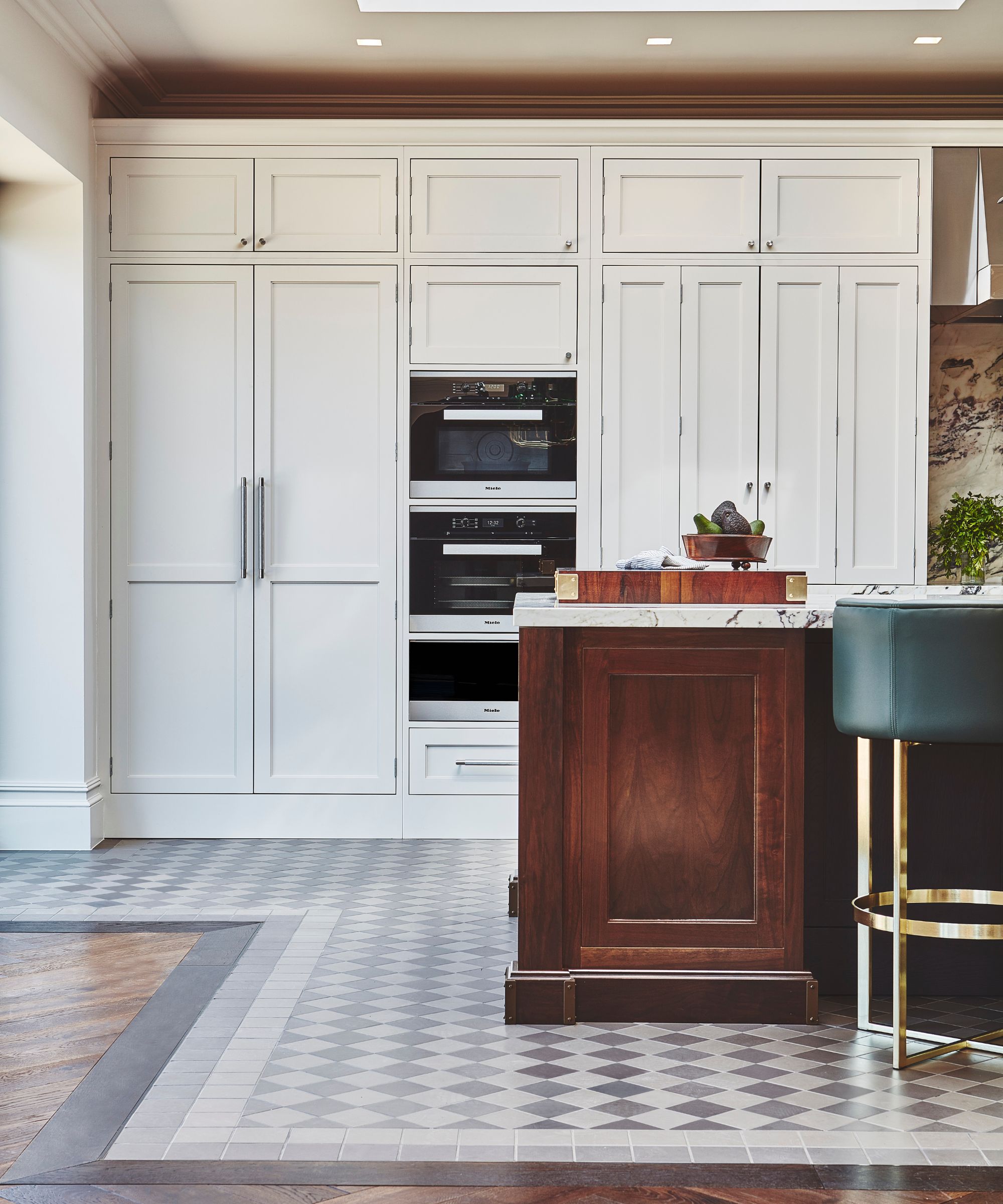
While the shape and design of your hardware needs to be considered when choosing the best hardware for your kitchen, the finish is also key to achieving an authentic kitchen in your chosen style.
'Choose hardware that complements your kitchen’s overall style and color palette. For example, matte black or stainless handles pair beautifully with modern, sleek designs, while brass or gold knobs can add warmth to a traditional kitchen. Don’t be afraid to mix and match styles for a unique look, such as combining knobs and pulls in different finishes for added interest,' says Allison Kaminsky, lead designer at Lola Tucker Interiors.
'Consider the finish of the hardware. It should match or contrast tastefully with your cabinetry and appliances, enhancing the kitchen’s overall aesthetic. Also, consider choosing timeless designs that will stand the test of time and fit your budget, as quality hardware is a worthwhile investment but many affordable options mimic high-end styles,' she adds.
4. Do you want all your hardware to match?
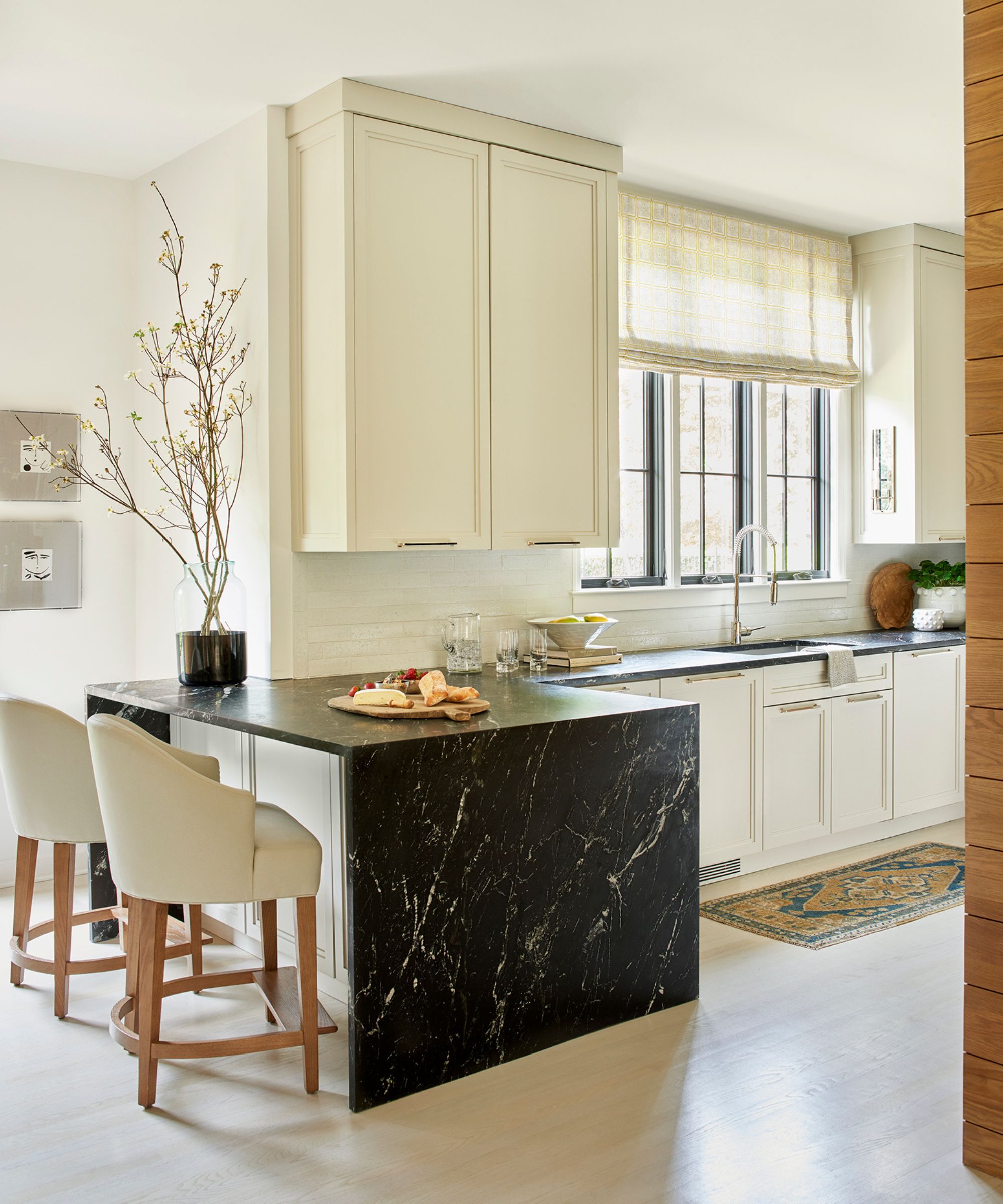
Eclectic interiors are becoming favored over those where everything matches – a design ethos that has encouraged a revival in mismatched kitchen hardware. While there is still an appreciation for kitchen hardware all in the same finish, it's certainly something to consider.
Which you choose will impact the overall design of your kitchen. 'First, consider if you want the hardware to make a statement or take a back seat in the design. This will help you to determine scale, finish, and style,' says Elle Cantrell, owner and lead designer, Elle Du Monde
'Consider the finishes of your plumbing and lighting in the space. Are you utilizing the same finish or contrasting? If you are using the same finish I recommend looking at samples as finishes can vary by vendor,' she adds.
If you do opt for contrasting kitchen hardware throughout your kitchen, make sure the two finishes or styles work together, but also that they both complement your kitchen cabinet color and style.
5. Have you thought about the scale of your hardware?
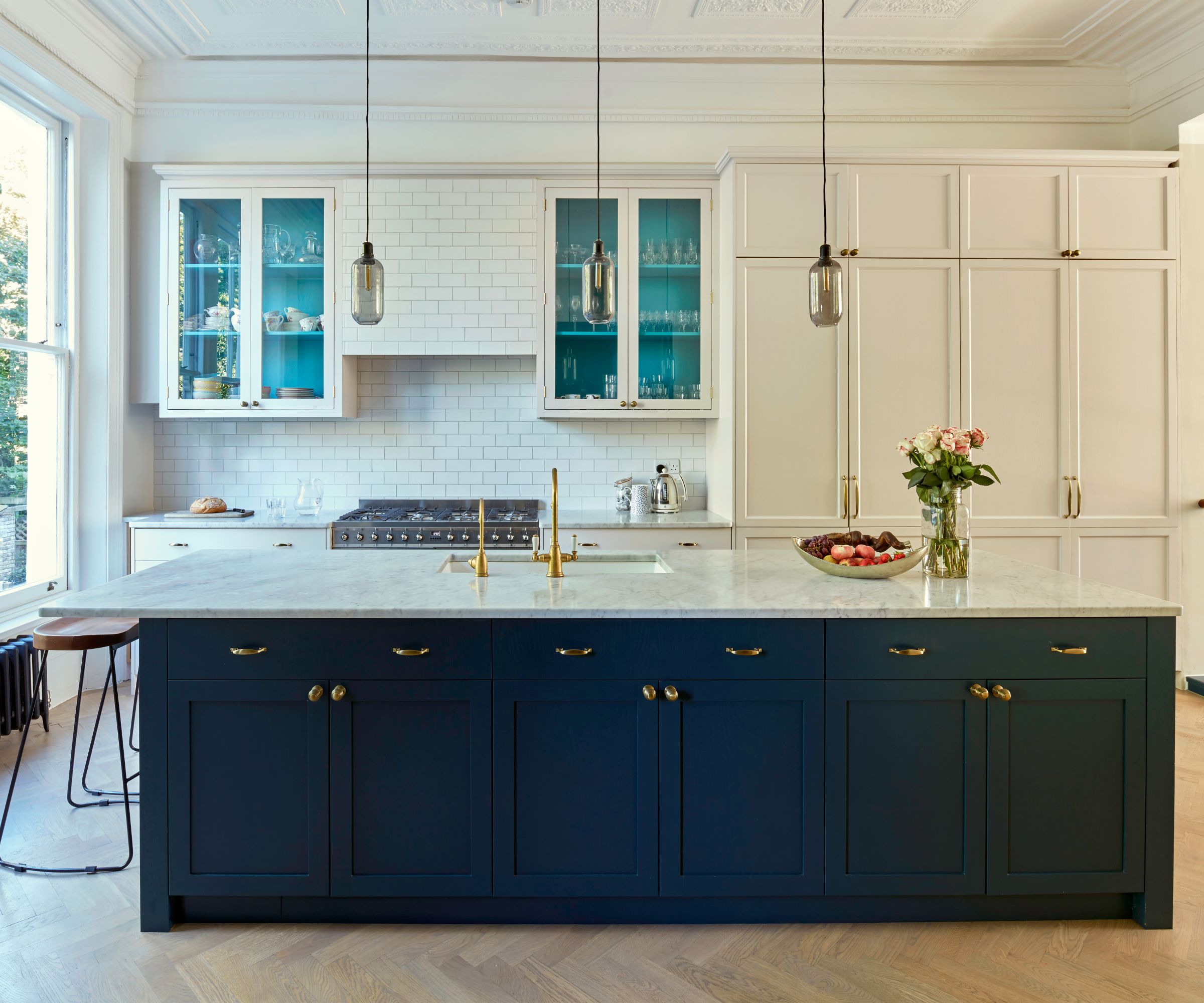
When it comes to kitchen hardware, you're going to need a few different options. Not every cupboard, draw, and appliance panel will require the same hardware. Consider the scale – a larger door will require larger hardware, heavier doors will need something strong, whereas drawers might need something more minimal.
'The choice of hardware is super important to finish off a design and can totally change to overall look of the kitchen. We always advise considering the hardware carefully both in terms of finish color and quality,' says Jayne Everett, creative director at Naked Kitchens.
'The style of the hardware choice depends on the cabinetry style. Bar handles work well on most styles and different sizes can be considered, longer handles on tall cabinetry, shorter for drawers, and T bars for smaller wall cabinets. Using the same handle collection creates consistency throughout the project,' she adds
Choosing the best hardware for your kitchen doesn't need to be complicated. Following these tips from interior designers and kitchen designers will set you on the right path, but remember, it's just as important that the kitchen hardware you choose appeals to your personal tastes, as well as adheres to your kitchen aesthetic.
Sign up to the Homes & Gardens newsletter
Design expertise in your inbox – from inspiring decorating ideas and beautiful celebrity homes to practical gardening advice and shopping round-ups.

I’ve worked in the interiors magazine industry for the past five years and joined Homes & Gardens at the beginning of 2024 as the Kitchens & Bathrooms editor. While I love every part of interior design, kitchens and bathrooms are some of the most exciting to design, conceptualize, and write about. There are so many trends, materials, colors, and playful decor elements to explore and experiment with.
-
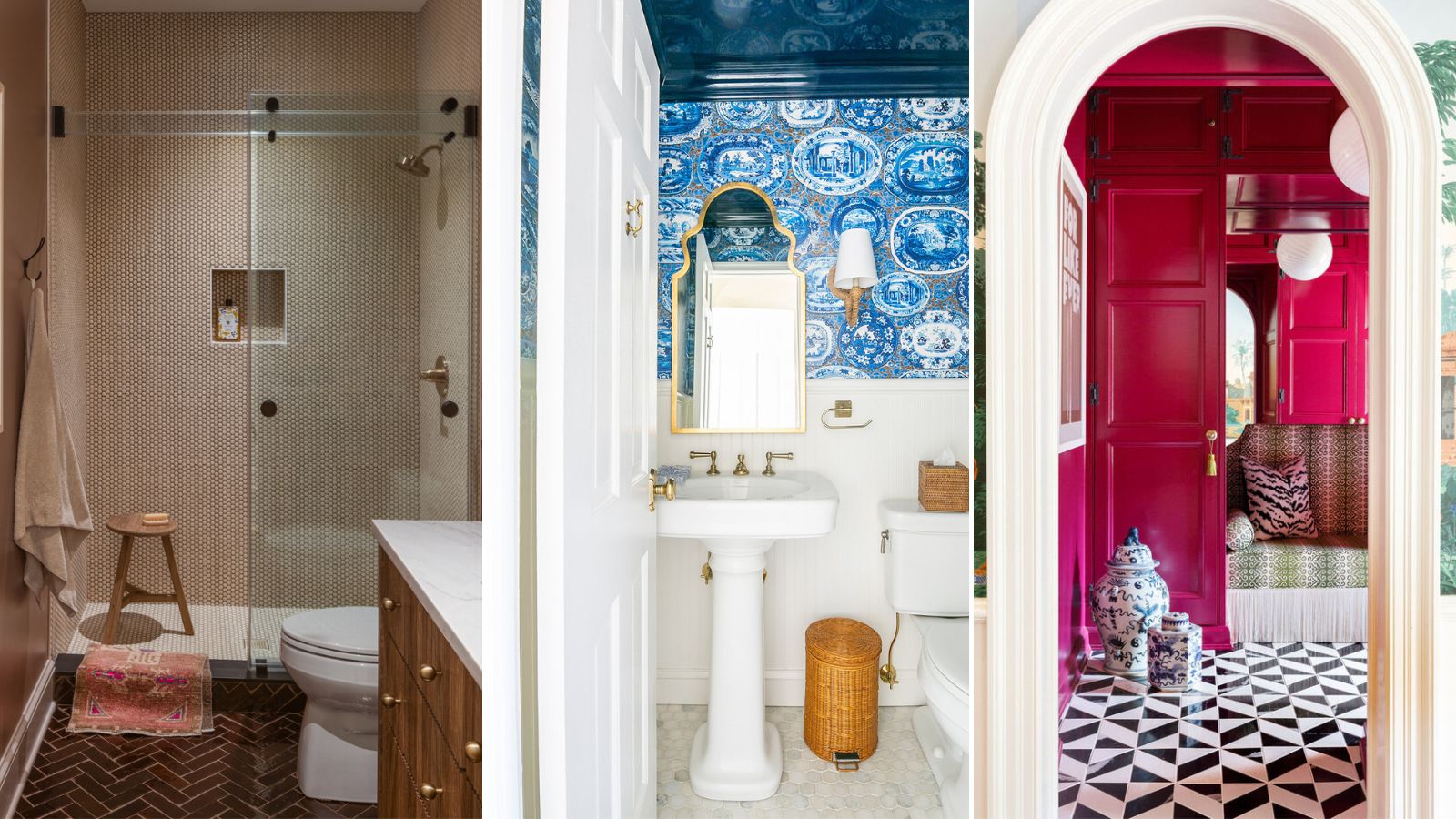 6 ways to decorate a windowless room, according to interior designers who have tackled the challenge
6 ways to decorate a windowless room, according to interior designers who have tackled the challengeA windowless room is undeniably a hard room to decorate, but with these beautiful examples and expert tips, you'll be inspired to look at your space in a new light
By Udita Choudhary
-
 5 things professional cleaners always do to overcome a cleaning roadblock – they're surefire ways to feel 'motivated and clear-headed' experts say
5 things professional cleaners always do to overcome a cleaning roadblock – they're surefire ways to feel 'motivated and clear-headed' experts sayGet your cleaning schedule back on track
By Ottilie Blackhall